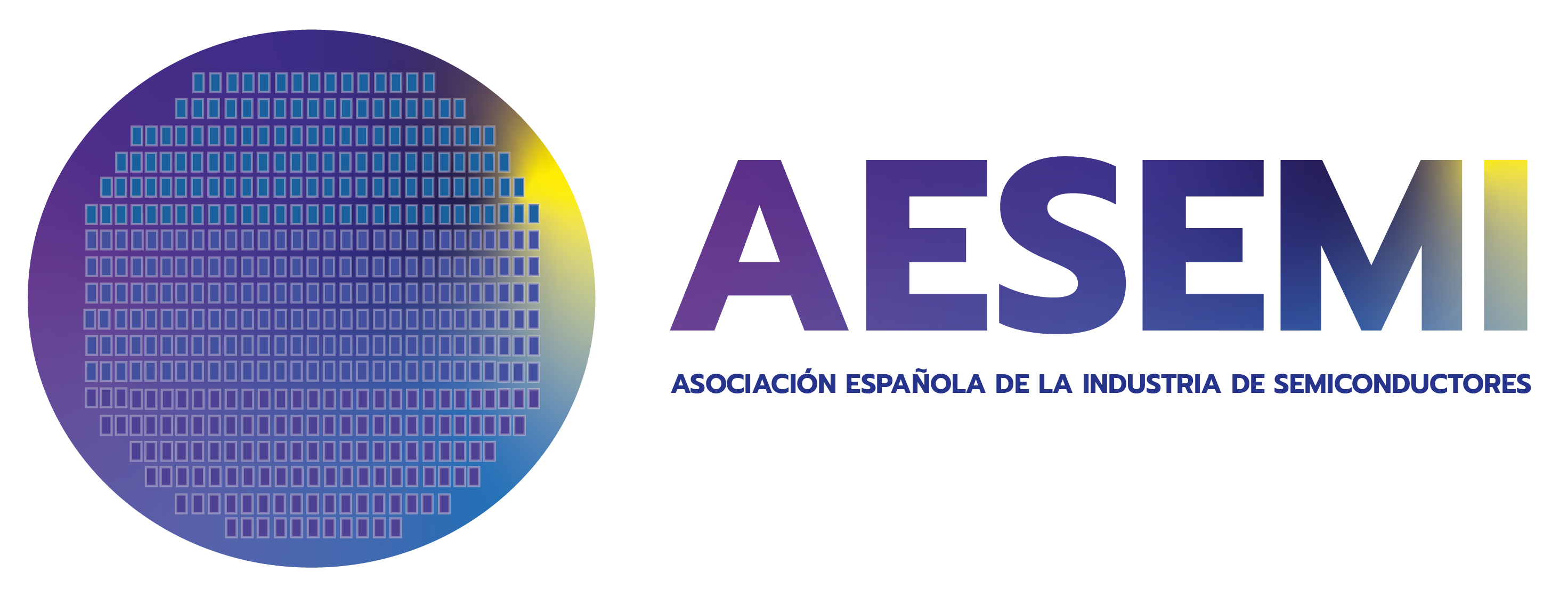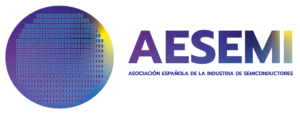COMMISSIONS
INNOVATION AREA
These are the five commissions currently active in the association. Members can choose to participate in any of them.
They all have regular meetings to actively develop their work.
The Universities and Talent Commission will develop specific work on engaging with the scientific ecosystem and developing the capacity to train or attract highly qualified personnel. The commission will work on:
1. Development of relations with the scientific ecosystem and contact with research centres, fostering public-private collaboration.
2. Development of a semiconductor training and capacity building network.
3. Development of specific training pathways on semiconductors and microchips, both in higher education and vocational training.
4. Positioning in terms of specific legislation for semiconductor professionals, addressing labour, tax and international relations issues, in order to attract highly qualified human capital.
Coordinator: Rodrigo Picos
The Industry Relations Commission is an advisory body within the Spanish Semiconductor Industry Association.
It aims to establish and maintain close relationships between the association and member companies, as well as with other organisations involved in the semiconductor industry. The committee is responsible for identifying and addressing challenges and opportunities in the industry, and for providing valuable information and resources to help member companies succeed. It also organises events and activities to foster collaboration and knowledge sharing among member companies.
In summary, the Industry Relations Committee aims to strengthen the position of the Semiconductor Industry Association in Spain and to improve the competitiveness of member companies in the global market.
Coordinator: Íñigo Martín Aizpuru
The financing commission will develop the work of obtaining funds from different sources: by commissions or nominal endowments in the development of studies, congresses or campaigns, by grants in competitive competition, or from membership fees.
Coordinator: Unai Zorriqueta
The industrial policy commission, while addressing some areas of PERTE, will have the special task of supporting the requirements for industry that may arise from the Chips Act, and for decision making that may be made in exceptional situations.
Among others, it will address:
1. Boosting the Fabless ecosystem and strengthening partnerships with the electronics industry, with the design and manufacture of semiconductors.
2. The development of the IPCEI and the Chips Fund, and of the particular incentive measures made as a result of these.
3. Sector development and measures in the PERTE concerning manufacturing processes and the ICT industry.
4. You will monitor the global situation in the semiconductor supply chain, detecting and identifying supply crisis situations or potential bottlenecks at global level.
5. Identify critical consumers and over-reliance on particular technologies and materials.
6. Given the situation of a supply crisis, it will develop specific positioning for the imposition of obligations on players in the design, production or consumption of semiconductors, or advise on joint procurement or crisis resolution.
Coordinator: Carlos del Pozo
The Foundries and Manufacturing Processes Committee should specialise in the development of positions and be at the core of strategic advice on the installation of foundries, the specific manufacturing processes, or the equipment of the facilities.
Among others, this commission should address:
1. The positioning of foundries in terms of construction and the development of specific incentives for foundries, as well as the continuous analysis of new developments in the field of manufacturing.
2. Monitoring of the clean room network initiative (MICRONANOFABS and other public and private), and of the analysis of their needs and public-private collaboration mechanisms for the use of their resources by external companies.
3. Monitoring of activities such as piloting, prototyping, testing and packaging, and how they can be promoted with PERTE, as well as developments in the field to assess their implementation in Spain.
4. Analysis of manufacturing, inspection and packaging equipment.
5. Initiatives and developments in the Far Backend process.
Coordinator: Javier Hernández
The innovation area aims to form working groups focused on technological advances in the sector. These groups will have a dual task: to understand the technological advances and evaluate their deployment in our country, proposing use cases or evaluating the real maturity of the developments; and to evaluate the needs of companies and research centres that favour these advances in order to help define specific R&D incentives.
The Architectures working group will focus on monitoring developments in architectures and how incentives for architectures should be channelled. In particular, it will address:
- RISC-V and developments of other mature ARM architectures.
- Alternative architectures and ASIC DIGITAL developments.
- Processors based on new technologies such as NTC (Carbon Nanotubes).
- Parallel and multicore processor architectures.
- Architectures for quantum memories and quantum processors.
Coordinator: Víctor Mayoral-Vilches victor@accelerationrobotics.com
The Systems and Materials Working Group will aim to provide a regular review of innovative elements such as new materials, MEMS and material safety, as well as address the particular branch of new developments in power electronics. It will address:
- Potential new materials: NTC, Diamonds.
- Power Electronics Innovations and Incentives.
- MEMS developments.
- The field of material security and cryptography.
This working group will focus on covering the field of photonics together with other key and related topics. It will cover:
- The area of photonics, including the analysis and proposal in the different calls for proposals that may be made in this sector.
- Optoelectronics, its development, innovation and particular measures that can be given impetus.
- The area of sensor technology, both in terms of current developments, in specific areas of work such as microelectronics, or new areas of innovation, such as NTCs, and particular incentives and measures for the sector.
Coordinator: Renato Turchetta
renato.turchetta@imasenic.com
The Quantum Technologies Working Group will focus on quantum computing from different perspectives.
It will focus on the current quantum computing ecosystem in Spain and will analyse measures to boost the sector, public-private collaboration channels, and relevant advances and innovations.
Coordinator: Carlos Rivera gcuantica@waptel.es
- Identify and promote key competitive advantages enabled by neuromorphic and AI technologies in strategic sectors for the Spanish industry, including transportation, robotics, aerospace, medical, environmental, agrifood, and machine tools.
- Bring together the activities of research centres and universities in areas related to neuromorphic technologies (physical, circuitry, and architecture levels) and align them with the interests of industry. The activity areas considered include:
- RTL design, digital and analog microelectronics, mixed-signal circuits.
- Memristive materials and their use to implement artificial neurons and synapses.
- Photonics and optical neural networks.
- Multi-technology integration, including crossbar, chiplet, and 3D stacking.
- Dynamic vision sensors (DVS) and event-based electrochemical sensors, spiking neural networks (SNN), and other microelectronic designs inspired by biology and/or neuroscience.
- Design of novel neuromorphic circuits for multi-modal perception (hyperspectral, electrochemical, and light-field vision) as well as to execute AI algorithms ultra-efficiently.
- Integration of neuromorphic designs into mainstream processing architectures to ease adoption by industry.
- Propose and develop high-value technology concepts enabled by neuromorphic and AI technologies through collaborative projects involving research centres, academia, and industry. Promote the commercial exploitation of results of these projects by newly created Spanish startups or already existing companies.
- Establish and ramp up a design and manufacturing chain for neuromorphic technologies in Spain using novel materials with new physical properties particularly interesting to implement new key circuit functionalities for these technologies.

